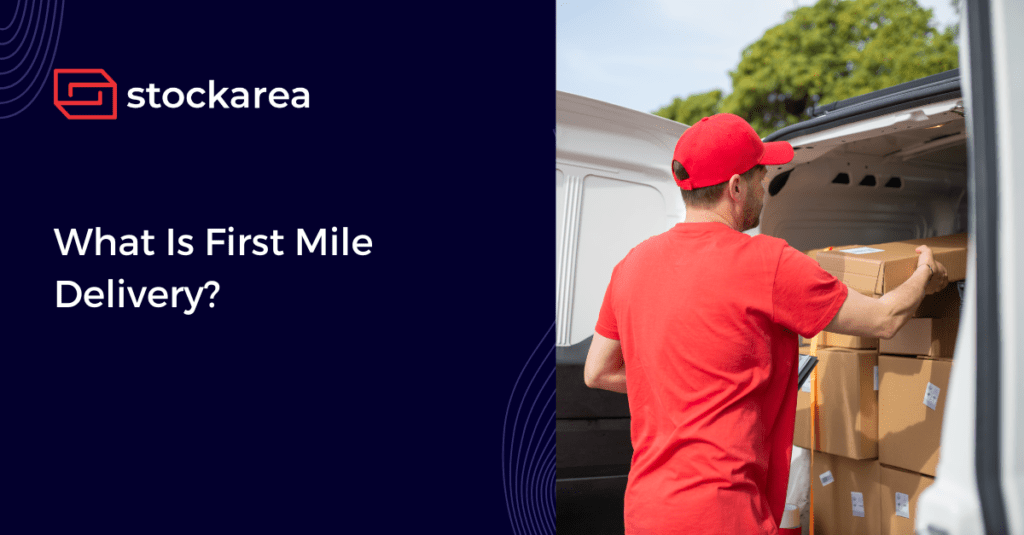First-mile delivery refers to the initial shipment of goods from the origin to the first inventory hub. It dictates the flow of the delivery process, and even a minor disruption in first mile delivery can derail the entire fulfilment operation.
- In retail, first-mile delivery refers to the transportation of products from the supplier to the retail distribution centres.
- For manufacturers, The movement of a manufacturer’s finished goods from the factory to the Inventory hub constitutes first-mile delivery.
- In e-commerce, first-mile delivery is the movement of goods from the seller’s warehouse to the first Inventory hub.
First-Mile Delivery Challenges
1. Poor Customer Focus
Businesses don’t pay attention to optimising their first-mile delivery because it does not interact directly with the customer, oblivious to the negative impact this has on the delivery process. Although first mile delivery does not include direct engagement with the consumers, it has a substantial impact on the overall customer experience with the delivery process since the seamless operation of middle and last mile delivery is contingent on the successful execution of first mile operations.
2. Improper Labelling & Packaging
Labelling is one of the most challenging aspects of first-mile delivery. Numerous businesses continue to use inefficient and potentially error-prone manual labelling techniques. Improper labelling techniques result in packages lacking all required fields, which makes shipment inefficient and susceptible to delays.
Companies typically use uniform packaging for first-mile delivery regardless of the type of product being shipped. Lack of material-specific packaging can result in product damage during transit, thereby increasing the costs for replacements and returns.
3. Lack Of Visibility
Customers demand visibility throughout the entire order fulfilment process. They want to track their packages from the point of origin to till it reaches their doorstep. Visibility is required not only for consumers but also for businesses to monitor the movement of the products and collect essential data. However, first-mile visibility is considered to be superfluous, which not only results in unsatisfied consumers but also prevents businesses from identifying disruptions in first-mile operations due to the lack of data.
4. Long Delays
The unpredictability of traffic and congestion causes unexpected delays in first-mile delivery. In addition, multiple regulations govern the movement of goods from one location to another, which makes delays inevitable and can result in higher transportation and fuel costs.
5. Lack Of Automation
Automation has been a significant challenge in the first-mile industry as many of the processes are still widely manual. Manual methods are highly prone to human errors, which can cause a loss of revenue and disrupt the flow of order fulfilment.
Need For Optimizing First-Mile Delivery
Due to the growing demand for the best possible deliverey experience, first-mile delivery needs to be optimised in order to ensure customer satisfaction. Increasing profit margins and lowering the costs of the supply chain are two other benefits that can be gained by optimising first-mile delivery. The following are some of the ways in which first-mile delivery can be optimised:
1. Real Time Tracking
Real-time tracking allows consumers and businesses to keep track of their first-mile operations. It enables improved visibility as well as the collection of data, which in turn enables businesses to analyse this data, determine where disruptions are occurring, and improve the first-mile delivery experience.
2. Digitisation
Many first-mile delivery processes can be effectively automated through modern technology. Digitising first mile operations will reduce the overall cost of delivery and also make the process less prone to errors and malfunctions. One of the standard processes that can be digitised is the labelling system. Using digitised labels over manual ones will avoid missing any details and, therefore, enable for better identification during the delivery process.
3. Outsourcing
By outsourcing your first-mile delivery to the right logistics partners, businesses can reduce operational costs and enhance delivery. Other advantages of outsourcing include increased agility, enhanced data security, risk management, and superior resources, as third-party partners are better equipped and have more expertise in first-mile delivery than independent businesses.
Conclusion
First-mile delivery is crucial to the efficient operation of the supply chain fulfilment procedure. Therefore, businesses must recognise the need to enhance their first-mile logistics . An outstanding first-mile delivery service enables faster deliveries and, in turn, benefits the industry by ensuring a good consumer experience.
Related posts
- First-Mile Delivery vs Last-Mile Delivery
- What is Last Mile Delivery?
- How Can Technology Improve Last-Mile Delivery?
- 7 Major Challenges Of Last-mile Delivery
- 8 Proven Ways to Reduce Last-Mile Delivery Cost
- What Is Reverse Logistics?
- Top 10 Leading Courier Companies In India
- 7 Steps To Choosing The Right Courier Partner
- Top 8 Technologies Shaping The Future Of Logistics
- How To Find The Right Trucking Partner
- Navigate Supply Chain Disruptions With Digitalization
- 7 things to consider when choosing a 3PL partner
- What Is Transportation Management System?
